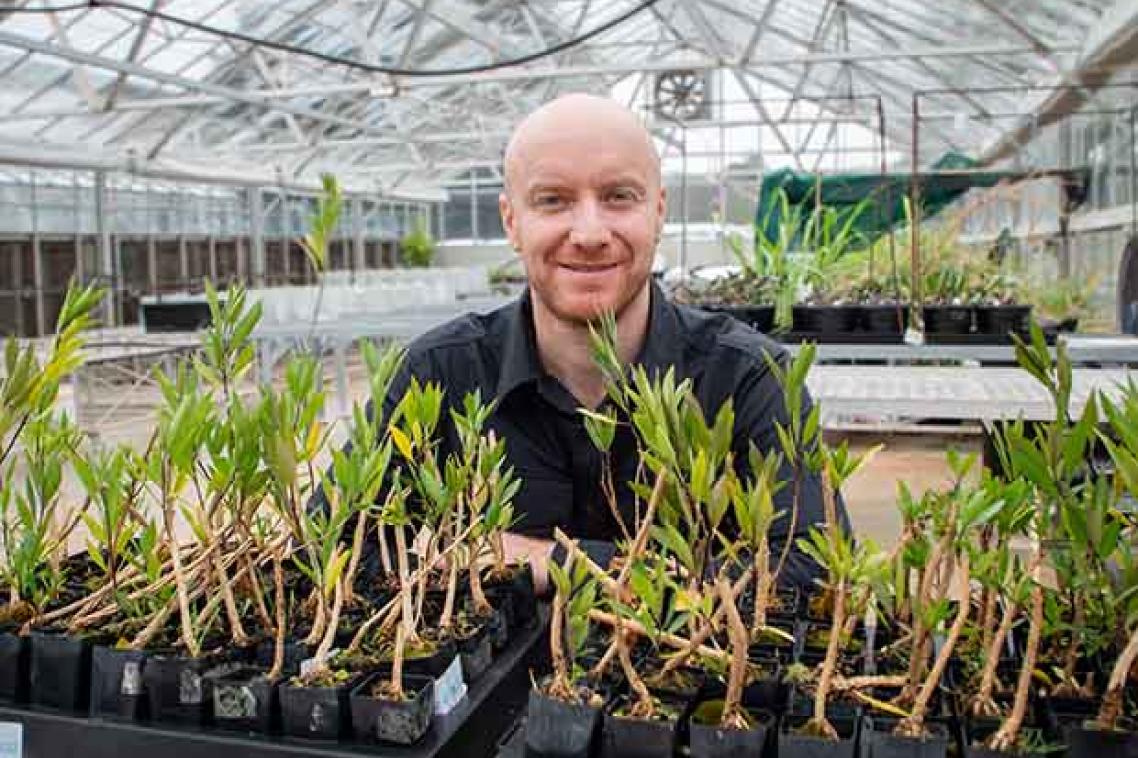New High-Scopolamine Duboisia Varieties Developed at the University of Queensland

IN NEWS: New High-Scopolamine Duboisia Varieties Developed at the University of Queensland
ANALYSIS
- Context and Purpose of the Research
- The University of Queensland (UQ) has developed new varieties of the native Australian plant Duboisia, a species valuable to the global pharmaceutical industry.
- The focus is on increasing scopolamine, an alkaloid used in medications for:
- Motion sickness
- Stomach disorders
- Side effects of cancer therapy
- Post-operative nausea and vomiting
- Scopolamine is widely used, and most surgical patients worldwide may have consumed Duboisia-derived medication.
- Scientific and Breeding Efforts
- Led by Dr Patrick Mason, UQ researchers:
- Surveyed Queensland’s national parks and private lands to collect Duboisia samples.
- Generated 700 breeding lines through a systematic breeding program.
- A selected subset is undergoing further evaluation for:
- Maximum leaf yield
- Consistent scopolamine production
- Results on commercial viability of the new lines are expected within two years.
- Led by Dr Patrick Mason, UQ researchers:
- Tissue Culture and Plant Propagation
- The Queensland Alliance for Agriculture and Food Innovation (QAAFI), led by Honorary Professor Neena Mitter, developed a tissue culture platform for Duboisia.
- Thousands of plant clones were produced to ensure:
- Adequate supply for testing
- Reliable propagation of high-scopolamine varieties
- Industry Collaboration
- The project is supported by India Glycols Limited (IGL), a leader in plant-derived pharmaceutical and nutraceutical ingredients.
- IGL’s Ennature Biopharma division partnered with UQ to develop higher-scopolamine Duboisia lines.
- The collaboration highlights:
- Industry reliance on stable, high-yield medicinal plant sources
- The commercial volatility associated with natural pharmaceutical compounds
- A long-term commitment to sustainable, nature-based innovations
- Significance
- Enhances global medicinal plant supply chains dependent on Australian Duboisia.
- Supports pharmaceutical resilience by addressing high demand for scopolamine.
- Demonstrates the role of biotechnology, tissue culture, and targeted breeding in strengthening plant-based pharmaceutical systems.
NECESSARY STATIC PART
- Plant: Duboisia (native Australian medicinal shrub)
- Key Compound: Scopolamine (alkaloid)
- Uses of Scopolamine: Motion sickness, stomach disorders, cancer therapy side effects, post-operative nausea
- Lead Institution: The University of Queensland (UQ)
- Lead Researcher: Dr Patrick Mason
- Supporting Team: Queensland Alliance for Agriculture and Food Innovation (QAAFI), led by Honorary Professor Neena Mitter
- Industry Partner: India Glycols Limited (IGL), Ennature Biopharma
- Breeding Output: 700 Duboisia lines; thousands of clones via tissue culture
- Objective: Develop high-scopolamine varieties to meet pharmaceutical demand
Updated – 20 January 2025 ; 10:25 PM | News Source: University of Queensland